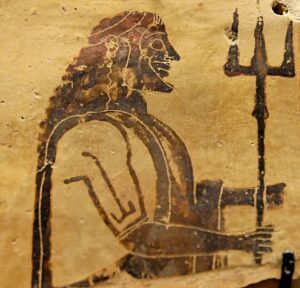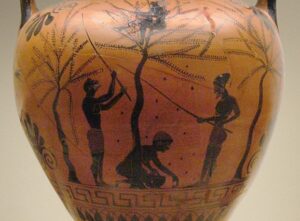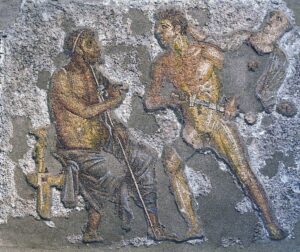The rise of ancient Greece as a significant civilization was the result of a combination of factors. At its heart, ancient Greece was based on the formation of city-states. The ancient Greeks lived in small, independent communities, each with its own unique culture and customs. These city-states were often in competition with one another, but they also cooperated when faced with a common threat. This system of city-states allowed the Greeks to develop a rich and diverse cultural heritage, which would eventually contribute to the rise of their civilization. As such, historians have identified the main factors that led to the rise of ancient Greece as a civilization, including: geography, culture, political developments, and military power.
It’s important to remember that people have lived in the Greek area for centuries. In fact, historians have identified two important civilizations (Minoans and Mycenaeans) that emerged in the Greek area before the classical period of ancient Greece. Regardless, the Minoans and Mycenaeans are both considered to be precursors to the eventual rise of city-states in ancient Greece, which flourished during the main periods of ancient Greek history. These main periods of ancient Greece are referred to as: Archaic Greece, Classical Greece, Hellenistic Greece and Roman Greece.
Geography Led to the Rise of Ancient Greece
Geography played a major role in the rise of ancient Greece. The country’s rugged terrain and numerous islands made it difficult for invaders to conquer, and also allowed for the development of independent city-states.
Additionally, the country’s coastal location made it an important hub for trade, which helped to stimulate economic growth. For instance, the Greek peninsula was located at the crossroads of several major trade routes, which allowed the ancient Greeks to establish trade with other neighboring civilizations, such as the Egyptians and Persians. This access to trade allowed the city-states of ancient Greece to accumulate wealth, which, in turn, helped them to develop their own culture and civilization.
Culture Led to the Rise of Ancient Greece
Culture also played a significant role in the rise of ancient Greece. The ancient Greeks developed a rich tradition of art, literature, philosophy, and science that has had a lasting impact on Western civilization. The Greeks were also known for their emphasis on democracy and citizenship, which helped to foster a sense of unity and shared identity among the city-states.
Furthermore, they were the first civilization to develop a systematic approach to philosophy, which allowed them to explore the fundamental questions of existence and the nature of reality. This interest in philosophy and science led to a flourishing of knowledge, which would eventually contribute to the rise of their civilization.
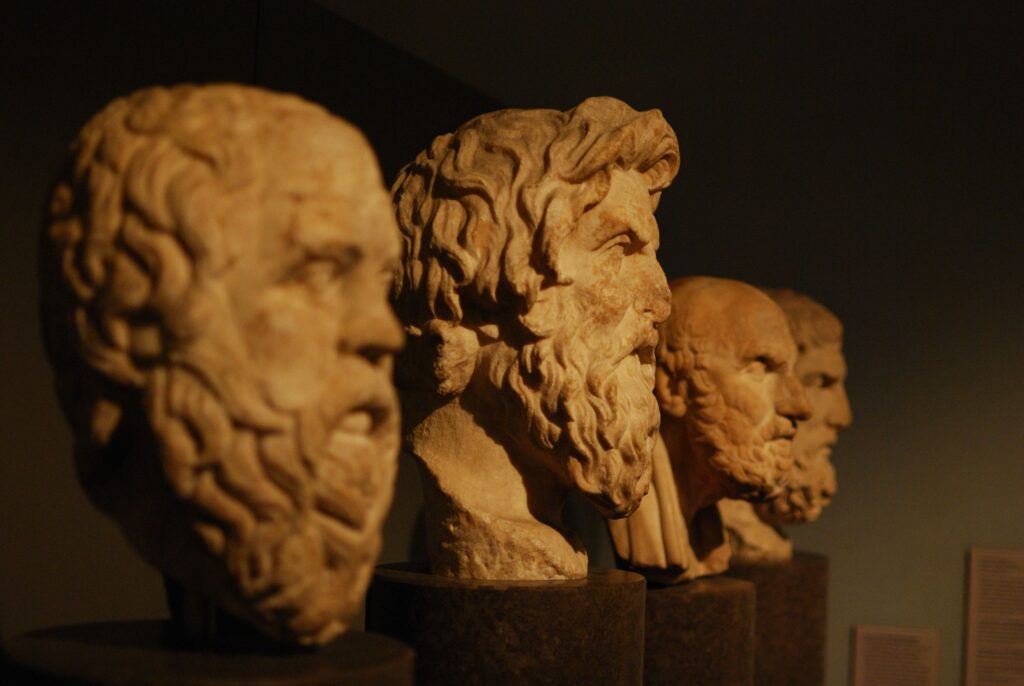
Political Developments Led to the Rise of Ancient Greece
Political developments also contributed to the rise of ancient Greece. The city-states of Greece were independent, and each had their own government, but they formed alliances with each other for common defense and trade, which led to the formation of the Delian League. The League was an alliance of Greek city-states led by Athens, which helped to strengthen the economy and military power of the participating city-states.
Additionally, Athens, one of the most powerful city-states, was able to establish a powerful navy and use it to expand its influence throughout the Mediterranean region through its naval empire. This expansion helped to establish Athens as a major economic and cultural center and set the stage for the city’s Golden Age.
Furthermore, the Greeks were the first civilization to develop a system of direct democracy, where citizens participated directly in the decision-making process. In fact, Athens is most famous for its use of democracy. This system of government allowed the Athenians to make decisions quickly and efficiently, which allowed them to respond to changing circumstances with ease.
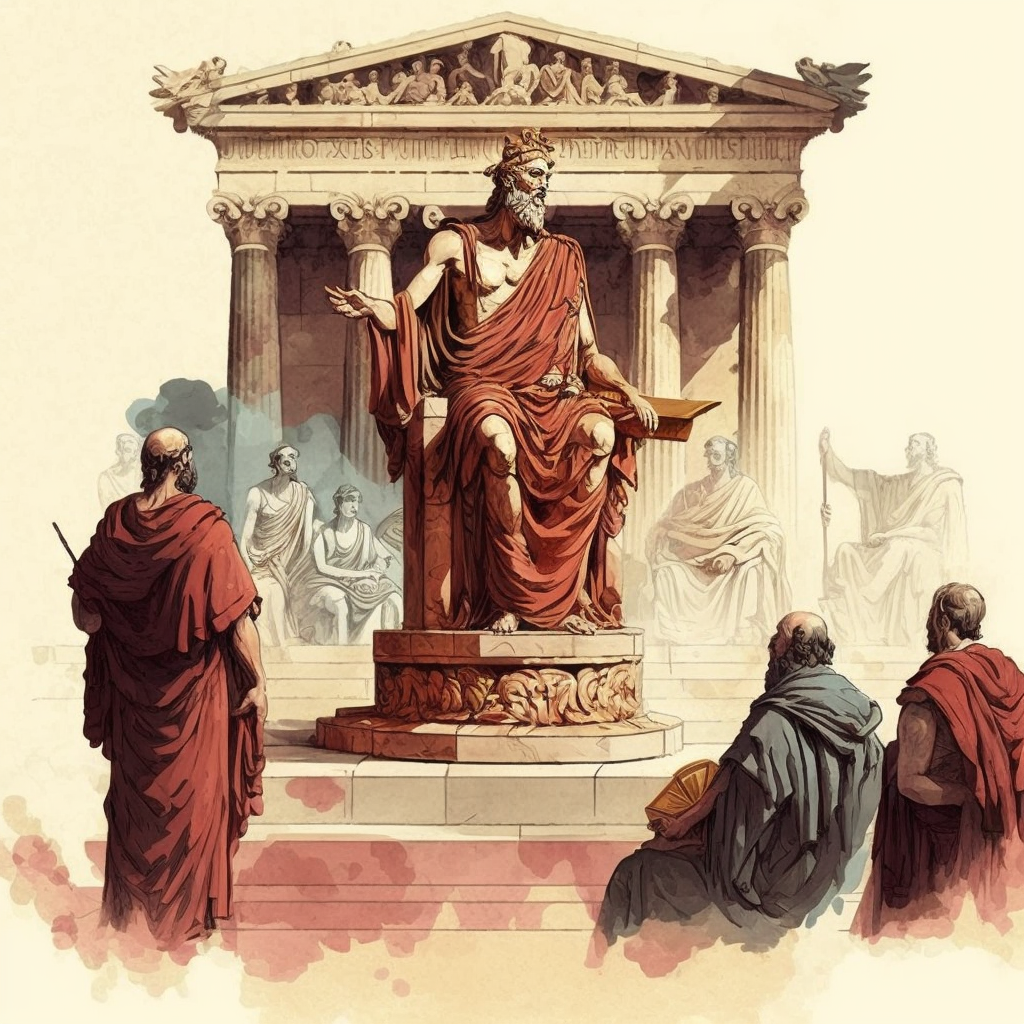
Military Power Led to the Rise of Ancient Greece
Finally, the military power of ancient Greece was another key factor in its rise. The Greeks were a fiercely independent people, and they were not afraid to defend their independence. Their well-trained and highly disciplined military allowed them to defend their city-states against external threats, and it also allowed them to establish colonies and expand their territory. In fact, the soldiers of ancient Greece were known for their fierce fighting and excellent strategies, which helped the city-states of ancient Greece to protect themselves and expand their territory against their enemies.
Soldiers in ancient Greece were referred to as hoplites, which was a type of heavy infantry soldier in ancient Greece. They were typically citizens of the city-state (polis) in which they lived, and were expected to provide their own weapons and armor. Hoplites were the backbone of the Greek military and the most common type of soldiers in the Greek army.


